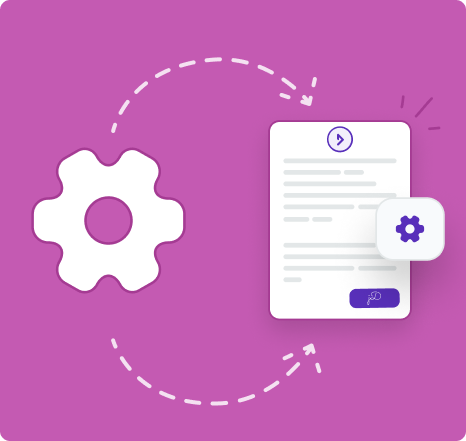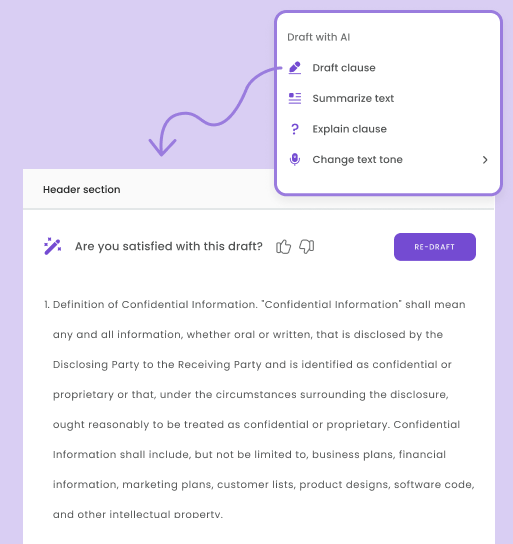Legal work is inevitable in the business landscape. Once you reach a certain scale, most legal work moves in-house.
Matter management can be designed as the overarching approach to keeping track of, organizing, and handling the various aspects of legal issues (or legal matters).
It’s far-reaching in its impact and encompasses the entire contract lifecycle.
In this guide, you’ll learn the nuances of matter management including the key components, benefits, and strategies to implement it effectively.
Key Components of Matter Management
Case Management
Case management is a crucial component of matter management that helps you organize and oversee all aspects of a legal case or project.
It involves tracking case details, deadlines, and progress from start to finish.
By using a case management system, you can efficiently manage case files, client communications, and case-related activities.
This system helps ensure all critical information is readily accessible, facilitating better decision-making and improving overall case-handling efficiency.
Effective case management helps you stay on top of key milestones and ensures that nothing falls through the cracks.
Document Management
Document management is another essential aspect of matter management that involves the organization, storage, and retrieval of documents related to your cases or projects.
Implementing a robust document management system allows you to keep all documents in a centralized location, making it easier to access and manage them.
This system typically includes features like version control, secure access, and indexing to help you find and manage documents efficiently.
Proper document management ensures that important files are not lost, minimizes duplication, and enhances collaboration by providing a single source of truth for all case-related documents.
Time and Expense Tracking
Time and expense tracking is vital for managing the financial aspects of your cases or projects.
By accurately tracking time spent on various tasks and recording expenses, you can ensure that billing is accurate and that you are reimbursed for all incurred costs.
A time and expense tracking system helps you monitor the productivity of your team, manage budgets, and generate detailed reports on expenditures.
This component is essential for maintaining transparency with clients, managing resources effectively, and ensuring that the financial aspects of cases are handled efficiently.
Task Management
Task management is a key element of matter management that involves organizing and prioritizing tasks related to your cases or projects.
Using a task management system allows you to create, assign, and track tasks, ensuring that all necessary actions are completed on time.
This system helps you manage deadlines, monitor progress, and allocate resources effectively. By maintaining a clear overview of tasks and their status, you can improve workflow efficiency, reduce the risk of missed deadlines, and ensure that all aspects of your matter are addressed systematically.
Tools and Technologies
Features to Look For
When evaluating tools and technologies for matter management, you should look for several key features to ensure that the system meets your needs effectively.
Firstly, seek out a user-friendly interface that simplifies navigation and minimizes the learning curve for your team.
Look for robust case management functionalities, including the ability to track case details, deadlines, and communications.
Document management features should allow for secure storage, easy retrieval, and version control of your files.
Additionally, effective time and expense tracking capabilities are crucial for accurate billing and budget management.
Task management tools should enable you to assign, track, and prioritize tasks efficiently.
Other valuable features include customizable reporting, integration with communication tools, and mobile accessibility to ensure that you can manage your matters effectively from anywhere.
Integration with Other Systems
Integration with other systems is another critical aspect to consider when selecting matter management tools and technologies.
Ensure the tool can integrate with your existing software solutions, such as email systems, calendar applications, and financial management platforms.
This integration allows for smooth data transfer and synchronization across different systems, reducing the need for manual data entry and minimizing errors.
Compatibility with third-party applications and cloud services can further enhance the functionality of your matter management system by expanding its capabilities and facilitating better collaboration.
By choosing tools that integrate well with your other systems, you can streamline your workflows, improve data accuracy, and enhance overall efficiency in managing your cases and projects.
Benefits of Effective Matter Management
Improved Organization
Effective matter management significantly enhances your ability to stay organized.
By centralizing all case-related information, documents, and tasks in one system, you can access and manage critical data.
This organized approach helps you keep track of deadlines, case details, and client communications, reducing the likelihood of missed deadlines or lost information.
With everything in one place, you can locate and update files, maintain a clear overview of your cases, and ensure that all aspects of your matter are systematically addressed.
Enhanced Collaboration
When all team members have access to a shared platform, they can seamlessly collaborate on documents, share updates, and coordinate efforts.
This shared access ensures that everyone is on the same page, reducing misunderstandings and improving teamwork.
Real-time updates and communication tools within the system facilitate smoother interactions and faster decision-making, ultimately leading to better outcomes for your cases and projects.
Increased Efficiency
Increased efficiency is another key advantage of effective matter management. By streamlining processes and automating routine tasks, you can significantly reduce the time and effort required to manage your cases.
Tools that track time, manage tasks, and handle document storage help you eliminate redundant work and focus on more strategic activities.
Improved organization and automation lead to faster case resolutions, more accurate billing, and a more productive workflow, allowing you to handle a higher volume of cases with less effort.
Cost Savings
Cost savings are a notable benefit of effective matter management. By improving organization, collaboration, and efficiency, you can reduce operational costs associated with manual processes, error correction, and duplicated efforts.
Efficient time and expense tracking ensures that billing is accurate and that all expenses are accounted for, helping to avoid revenue leakage.
Additionally, by optimizing resource allocation and minimizing time spent on administrative tasks, you can achieve better financial outcomes and enhance the overall profitability of your practice or organization.
Implementing Matter Management in Your Organization
Assessing Your Needs
Begin by evaluating the current challenges and inefficiencies in your case and project management processes.
Identify what features and functionalities are essential for your organization, such as case tracking, document management, or time and expense tracking.
Engage with key stakeholders to gather insights on their requirements and preferences.
This thorough assessment will help you understand what you need from a matter management system and ensure that the solution you choose will address your organization’s unique needs.
Choosing the Right Solution
Once you have a clear understanding of your needs, the next step is to choose the right matter management solution.
Research various options available in the market and compare their features, ease of use, and integration capabilities.
Consider factors such as scalability, customization options, and cost to ensure that the solution aligns with your requirements and budget.
It’s also beneficial to request demonstrations or trial versions of the software to evaluate how well it meets your needs in practice.
Selecting the right solution will set the foundation for successful implementation and effective matter management.
Training and Onboarding
Develop a comprehensive training plan to ensure that all users understand how to effectively use the new system.
Provide hands-on training sessions, create user manuals, and offer ongoing support to help employees become comfortable with the new tools and processes.
Effective onboarding helps users adapt to the new system quickly, reduces the learning curve, and minimizes disruptions.
Clear communication and support during this phase are essential to achieving a smooth transition and ensuring that everyone is proficient in using the new system.
Ongoing Evaluation
After the matter management system is implemented, ongoing evaluation is necessary to ensure it continues to meet your needs.
Regularly review system performance, gather feedback from users, and assess whether the system is delivering the expected benefits.
Address any issues or challenges that arise and make necessary adjustments or updates to the system.
Conduct periodic audits to ensure compliance with your organization’s processes and regulatory requirements.
Ongoing evaluation helps you maintain the effectiveness of the system, adapt to changing needs, and continuously improve your matter management practices.
Challenges and Best Practices of Matter Management
Common Challenges
Implementing and managing matter management systems can come with several challenges.
One common issue is resistance to change, as team members may be accustomed to existing processes and reluctant to adopt new technologies.
Another challenge is ensuring data accuracy and consistency, especially when integrating with other systems or migrating data.
Additionally, managing user access and maintaining data security can be complex, particularly when dealing with sensitive information.
System compatibility and integration issues can also arise, potentially causing disruptions or inefficiencies.
Addressing these challenges requires careful planning and proactive management to ensure a smooth transition and effective use of the system.
Best Practices
To overcome these challenges and ensure successful matter management, follow these best practices.
First, involve key stakeholders early in the process to gain their support and address any concerns about the new system.
Provide thorough training and resources to help users adapt to the new technology and understand its benefits.
Implement robust data governance practices to ensure data accuracy, consistency, and security.
Choose a matter management solution that integrates well with your existing systems to minimize compatibility issues and streamline workflows.
Regularly review and update the system based on user feedback and changing needs to ensure it continues to meet your organization’s requirements. By following these best practices, you can effectively manage matters, improve efficiency, and achieve better outcomes for your organization.
Conclusion
Matter management encompasses many aspects and can involve many tools to do it effectively. When getting started, it’s important to assess your needs and outline them in a systematic manner.
Start with the most pressing issues before expanding matter management to other areas of your internal and external cases.
Use tools that integrate well together. For example, DoxFlowy can handle contracting, document automation, and storage. You may choose another tool for project and task management or billing.




